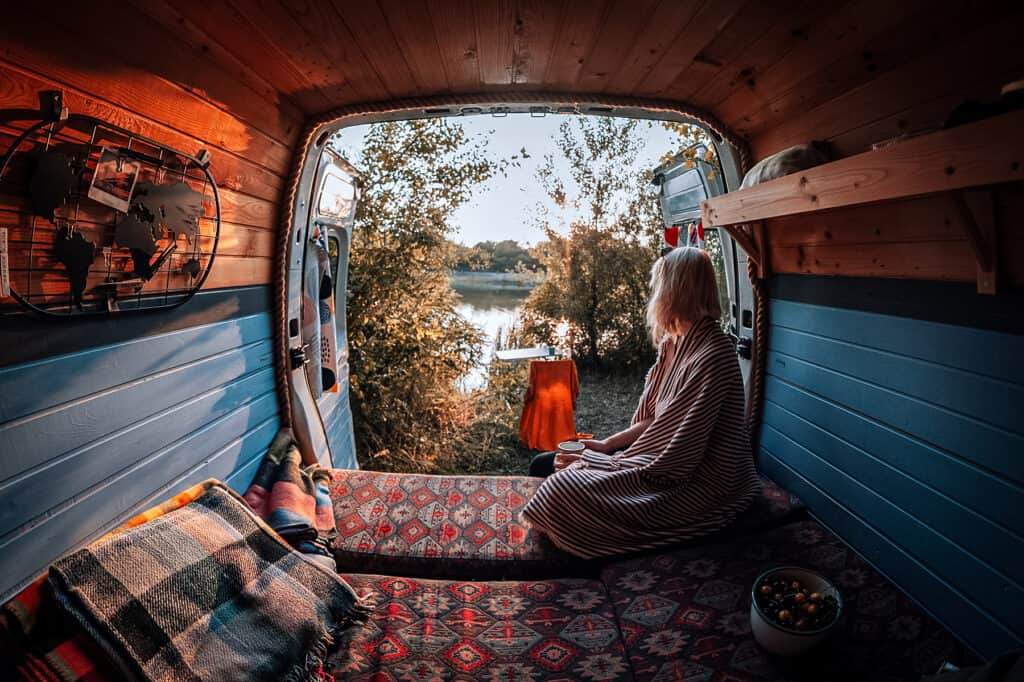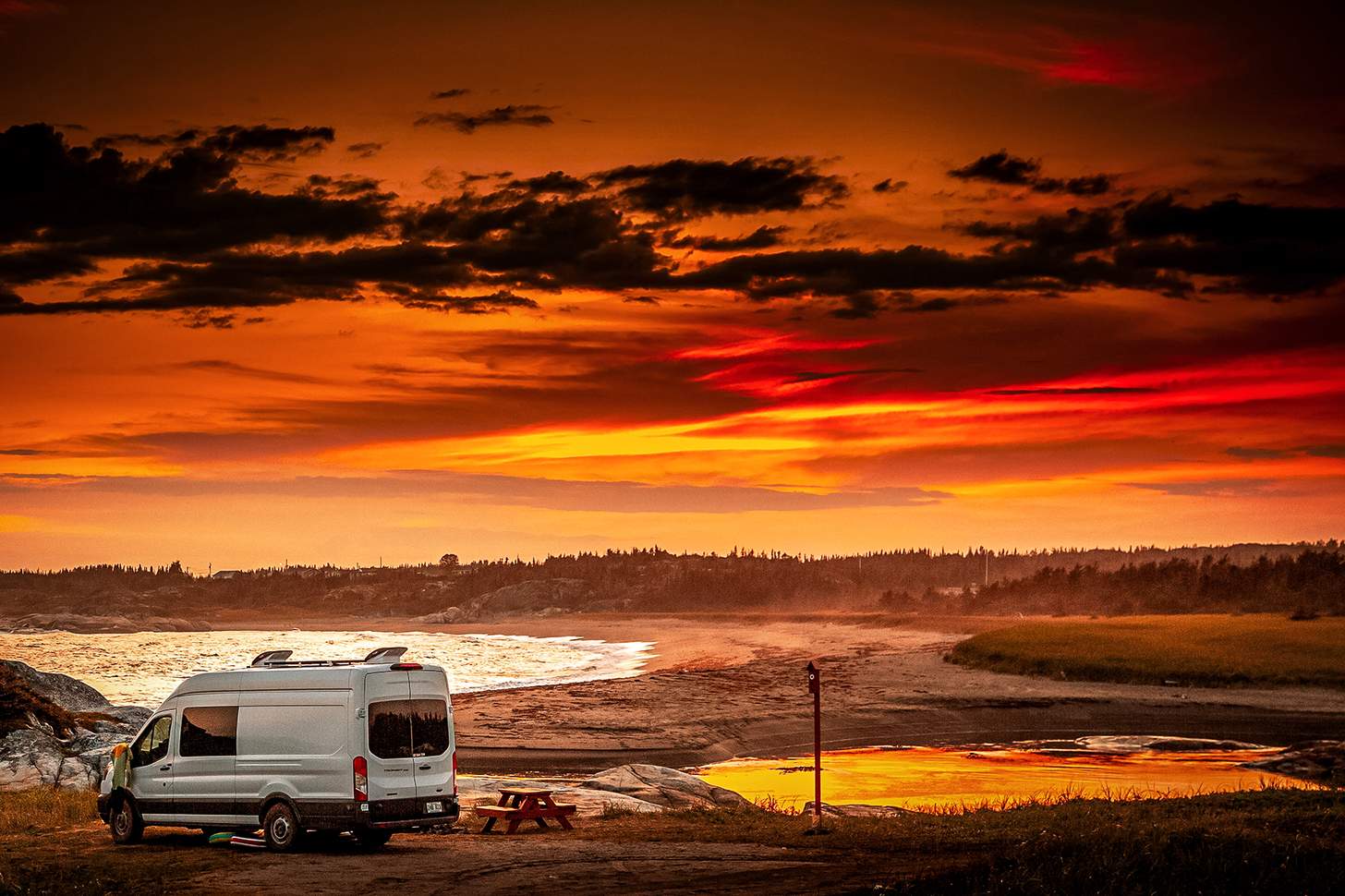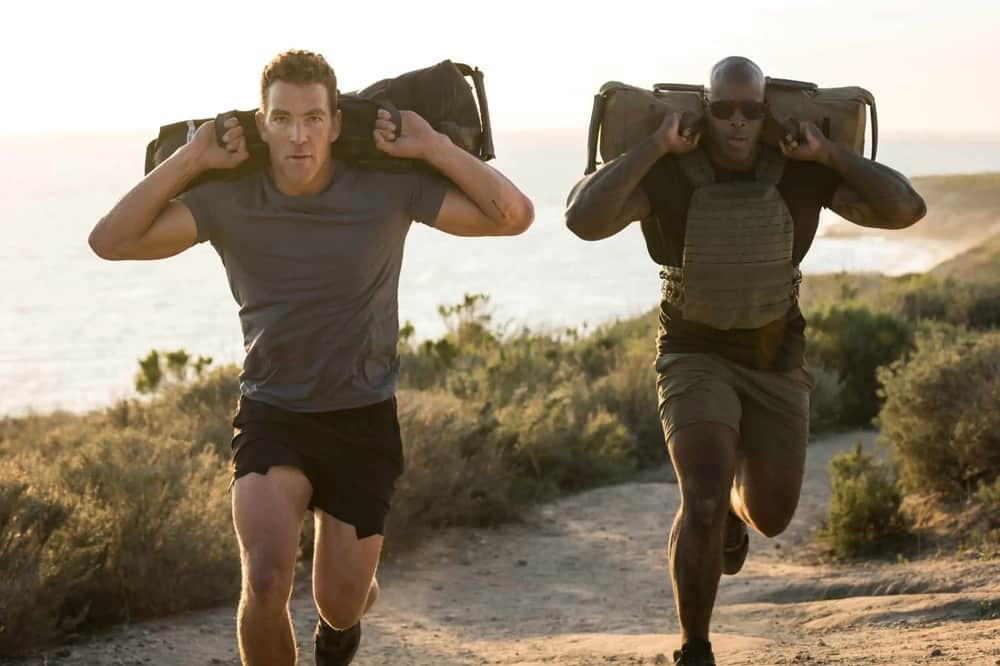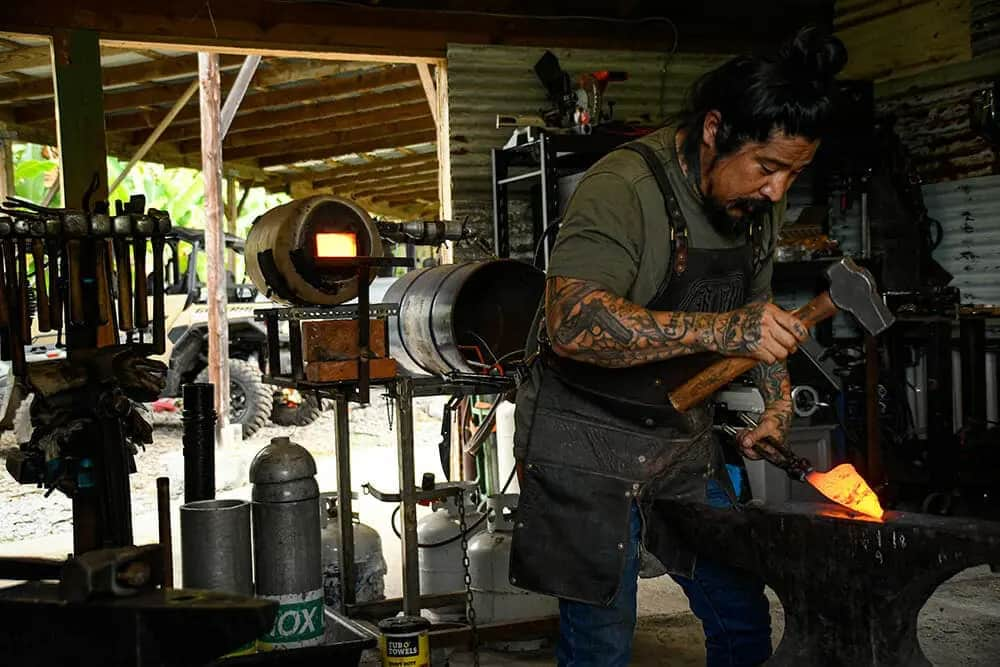For anyone living on the road, whether in a converted van, an RV or a beloved old school bus, water isn’t just a basic need. It’s a logistical challenge, a precious commodity and often the deciding factor in where to stop for the night or how far to push toward the next destination. Without access to reliable, clean water, cooking, drinking, bathing, and basic hygiene can quickly become major hurdles. But with a little planning, some resourcefulness and the right tools, van lifers can manage their water needs smoothly and sustainably.
The Daily Water Dance of Van Life
Unlike traditional homes, which offer endless streams of water at the twist of a faucet, life on the road demands that every drop be accounted for. Many van lifers develop a daily or weekly rhythm around water — monitoring usage, timing refills and scouting out new sources. Some plan their routes specifically around known refill points, while others rely on a mix of apps, word of mouth, and local knowledge.
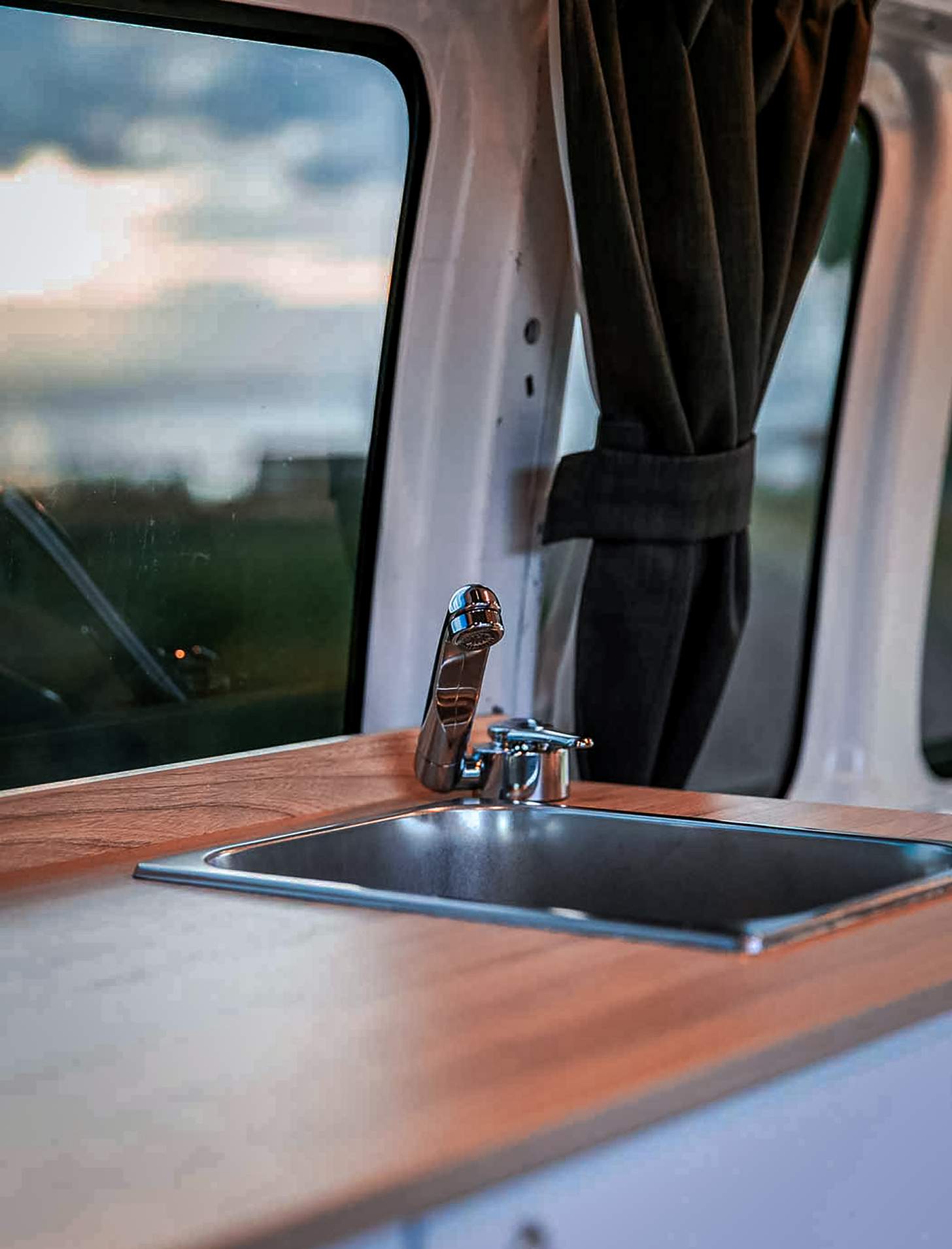
Water isn’t just about hydration. It’s cooking dinner, rinsing dishes, brushing teeth, and taking showers — or at the very least, a quick rinse. It’s also about peace of mind. Running low on water can mean cutting a trip short or abandoning a quiet boondocking spot in search of the nearest spigot.
Where to Find Public Water on the Road
One of the most valuable skills in van life is knowing where to find clean, potable water. Fortunately, the U.S. is dotted with refill points if you know where to look.
Campgrounds and RV parks are among the most reliable sources. Whether it’s a state park, national park or private campground, most have water stations available for guests. Even if you’re not staying overnight, many parks will allow you to fill up for a small fee, or even for free, especially if you ask politely at the entrance booth or visitor center.
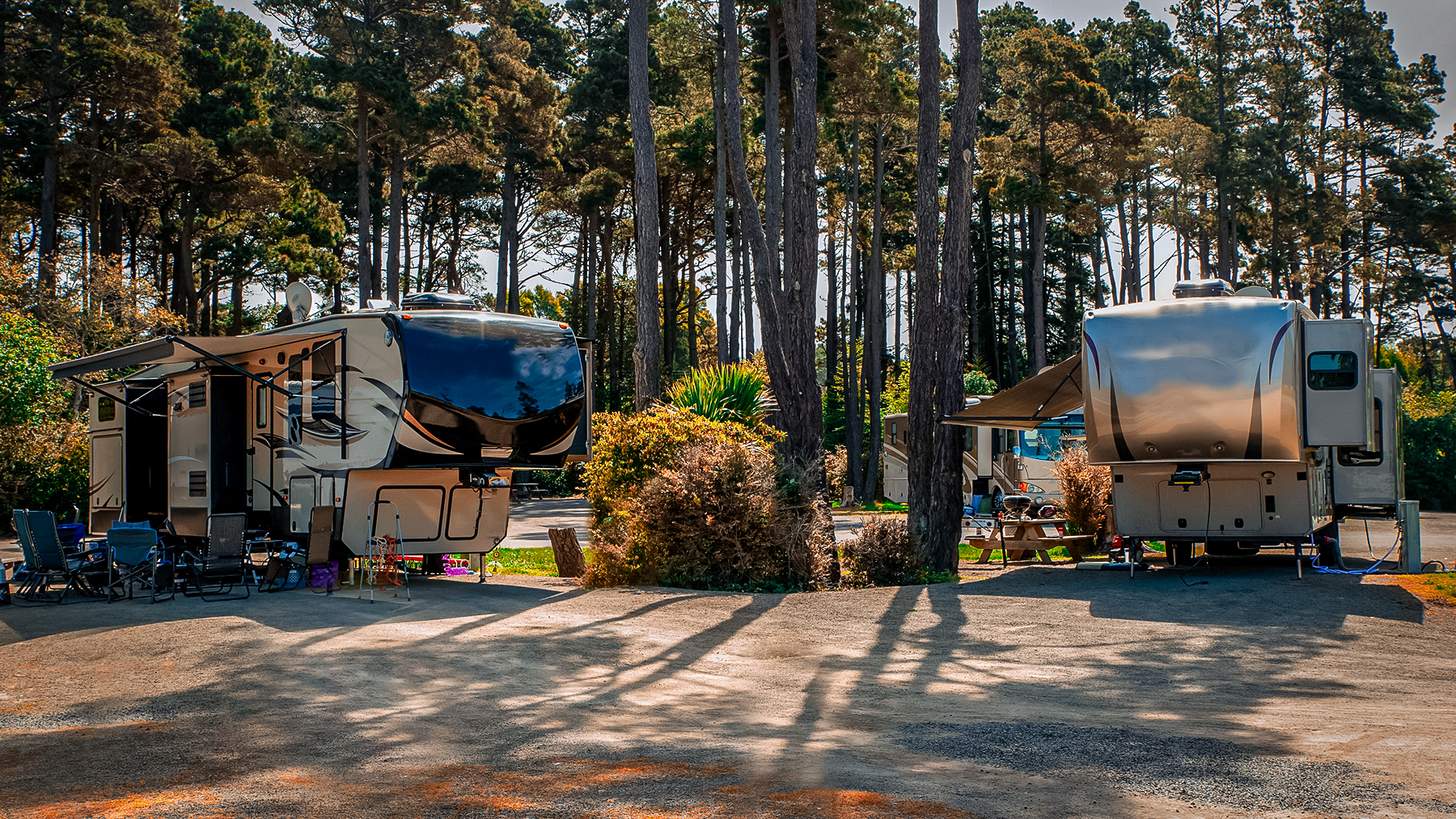
Gas stations and truck stops can also be surprising water allies. While not every location will have an accessible spigot, many do, particularly truck stops catering to long-haul drivers. The key is to ask. A courteous request often leads to a positive response.
Public parks, rest areas and highway pull-offs frequently have water fountains or hose bibs, though not all are suitable for drinking. It’s important to verify whether the water is potable; when in doubt, don’t fill your tanks. Some municipal parks also have RV dump stations with potable water fills, a hidden gem for those willing to do a little digging.
Grocery stores, co-ops and big-box retailers are another dependable resource. Many offer water refill stations inside or in the parking lot, where filtered water is sold by the gallon at a low cost. These stations are popular among locals and travelers alike.
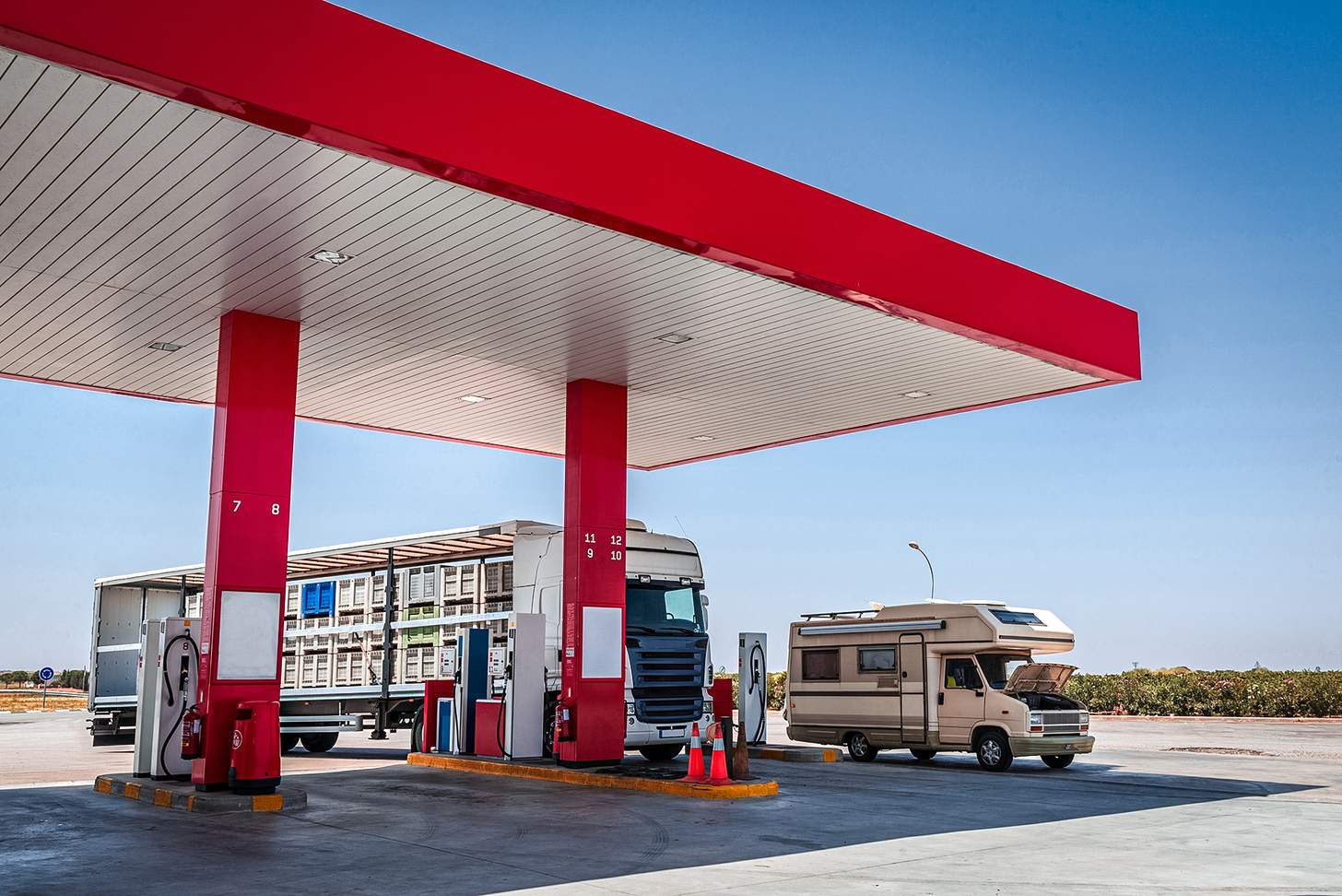
Some van lifers have had success politely asking for water at fire stations, churches, or visitor centers, especially in smaller towns. While not every request will be granted, many communities are happy to help a respectful traveler in need.
Of course, digital tools have transformed how water is sourced. Apps like iOverlander, Campendium and FreeRoam allow users to tag water refill locations and share updated info on whether they’re still functional, free or restricted. Online communities like Reddit’s r/Vanlife are also rich sources of real-time advice.
Tools of the Trade
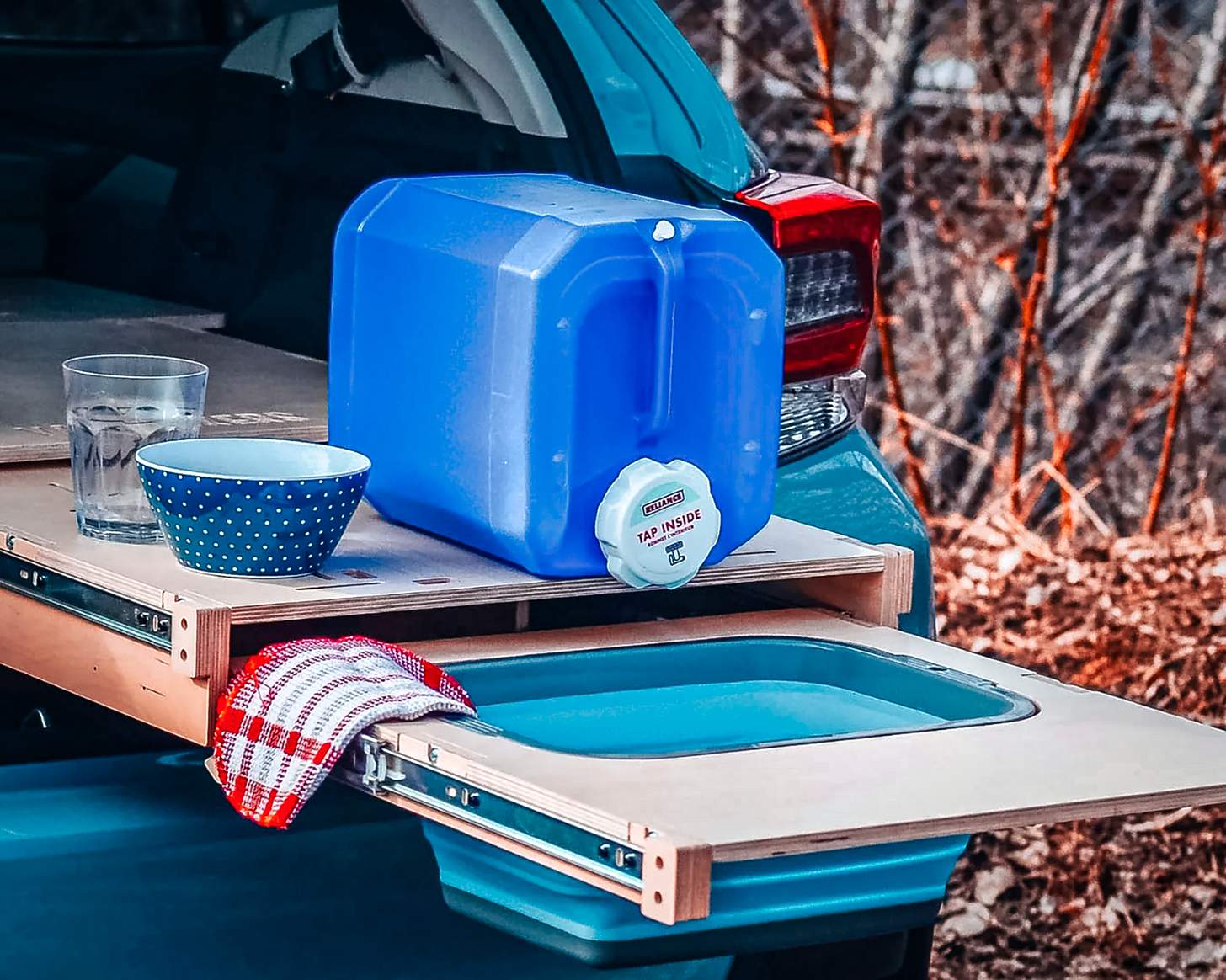
Staying water-ready on the road means being prepared with the right equipment. Most van lifers carry one or more large-capacity water containers, often made of food-grade plastic. Brands like Reliance and Scepter offer durable options that can withstand daily use.
For filling up, a food-safe hose is essential, especially if you're connecting directly to a campground spigot or municipal source. Having the right adapters, like a Water Bandit or hose splitter, can make all the difference when faced with mismatched fittings.
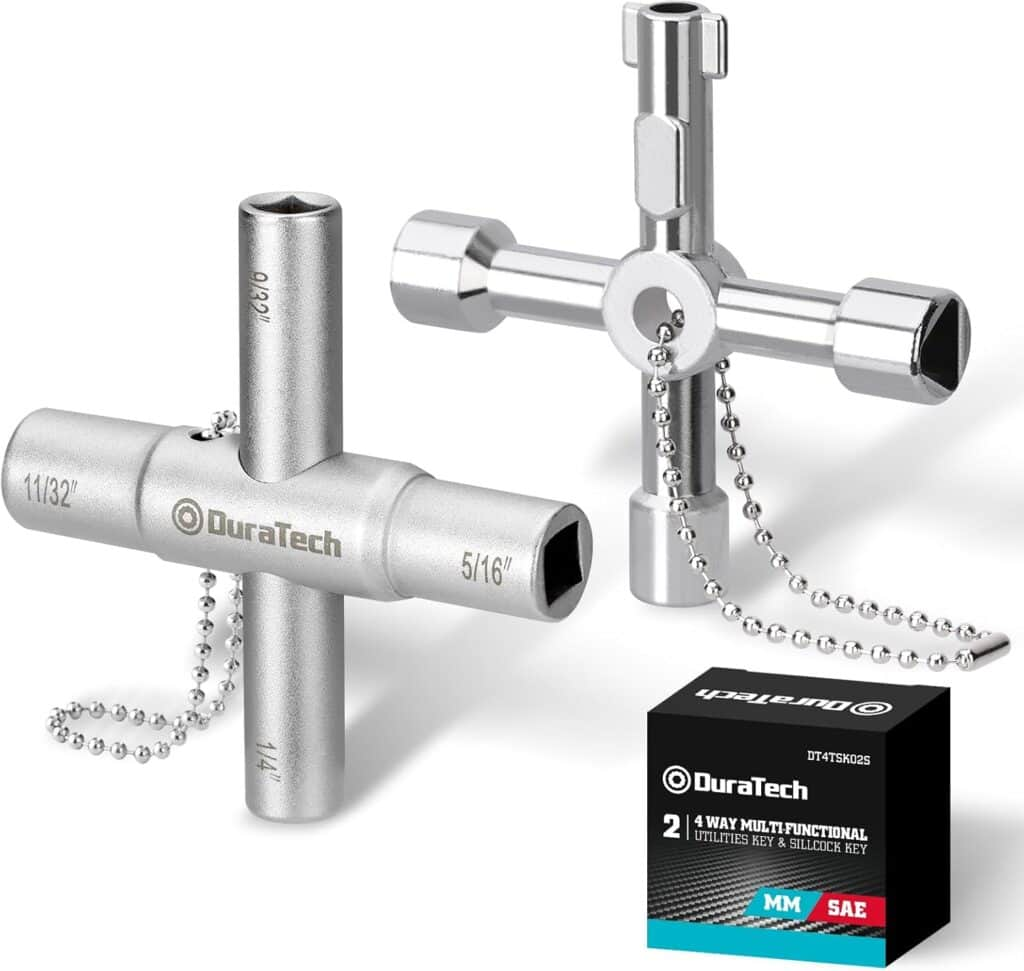
Some travelers also carry a silcock key, a small metal tool that opens commercial spigots often found on the exterior of buildings. While it can be a game-changer, it’s crucial to use it only where water access is permitted and legal. Respect for property and local regulations is a cornerstone of responsible van life.
Clean Water Is Safe Water
Not all water that flows from a tap or hose is safe to drink. That’s why many van lifers rely on portable filtration or purification systems. Compact filters like the LifeStraw Flex or Sawyer Mini are popular for their effectiveness in removing bacteria and protozoa. These filters can be used with refillable bottles or in-line systems and are small enough to tuck into a backpack for hikes or emergency use.
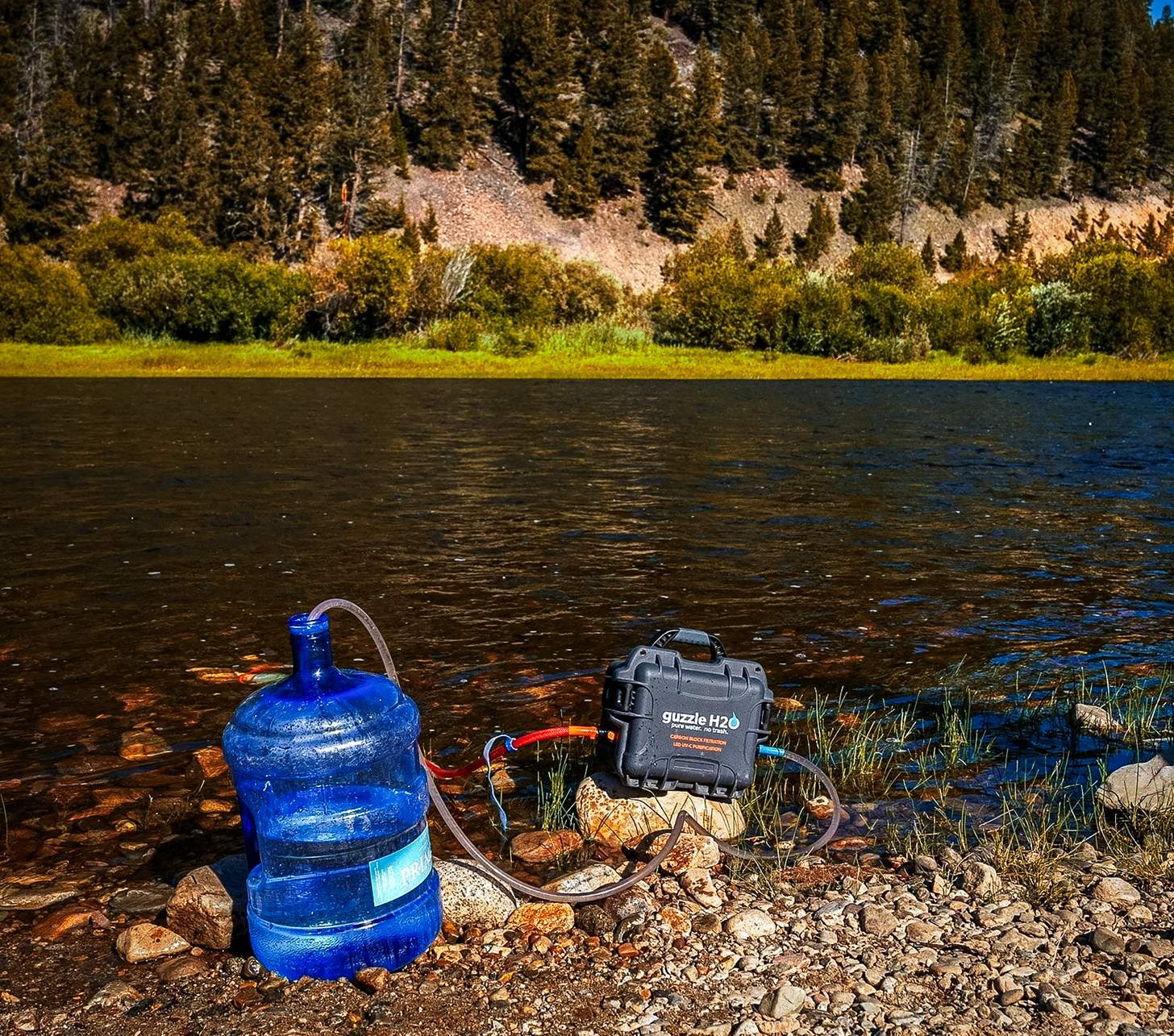
For those living full time in a van or skoolie, onboard water filtration systems offer greater convenience. Guzzle H2O, for instance, offers bundles that purify water as it enters your tank, reducing the need for constant vigilance at every source.
Boiling remains the gold standard for purification, especially when collecting from natural water sources. It’s simple, effective and doesn’t require gear — though it does demand fuel and time. Chemical purifiers and UV systems like the SteriPEN are also viable options, particularly for solo travelers or minimalist setups.
Bathing on the Move
Staying clean on the road requires flexibility. Many van lifers use solar showers, which are essentially black bags that warm up in the sun and provide gravity-fed showers through a nozzle. Brands like Advanced Elements make versions that hold five gallons, enough for two quick showers or one luxurious rinse.
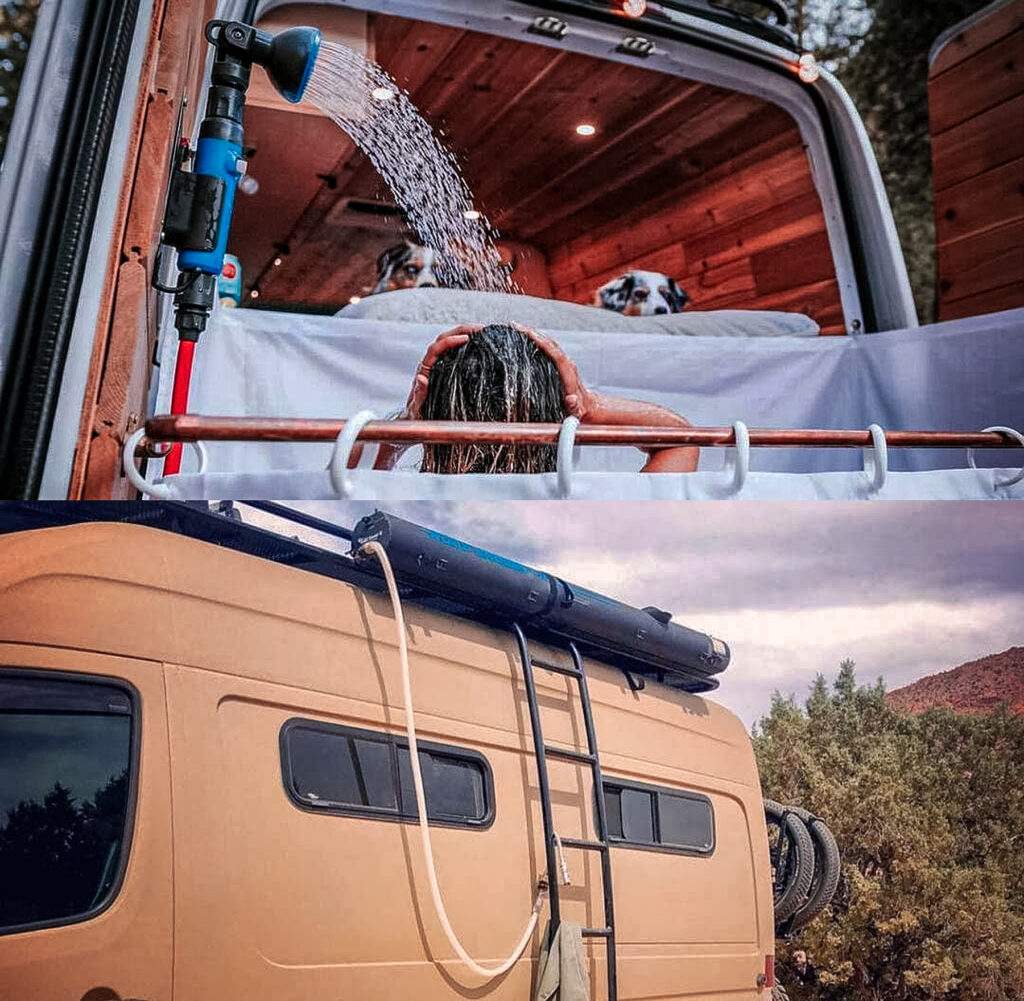
When solar isn’t available, public facilities are the next best option. Nationwide gym memberships, like Planet Fitness or Anytime Fitness, are a popular workaround, offering showers and workout equipment for a low monthly fee. Truck stops like Pilot and Love’s also provide clean, private showers for a modest price with no membership required.
Natural bodies of water can serve as refreshing, scenic bathing options, but it’s essential to use biodegradable soap and follow Leave No Trace principles. What’s good for you shouldn’t harm the environment.
Saving Every Drop: Conservation Tips
Water conservation is more than eco-consciousness; it’s survival. Van lifers quickly learn how to stretch every gallon. Short, efficient “navy showers” (wet down, turn off the water to soap up, then rinse quickly) become second nature. Dishes are scraped thoroughly before washing, and a small spray bottle can serve as both pre-rinse and final rinse.
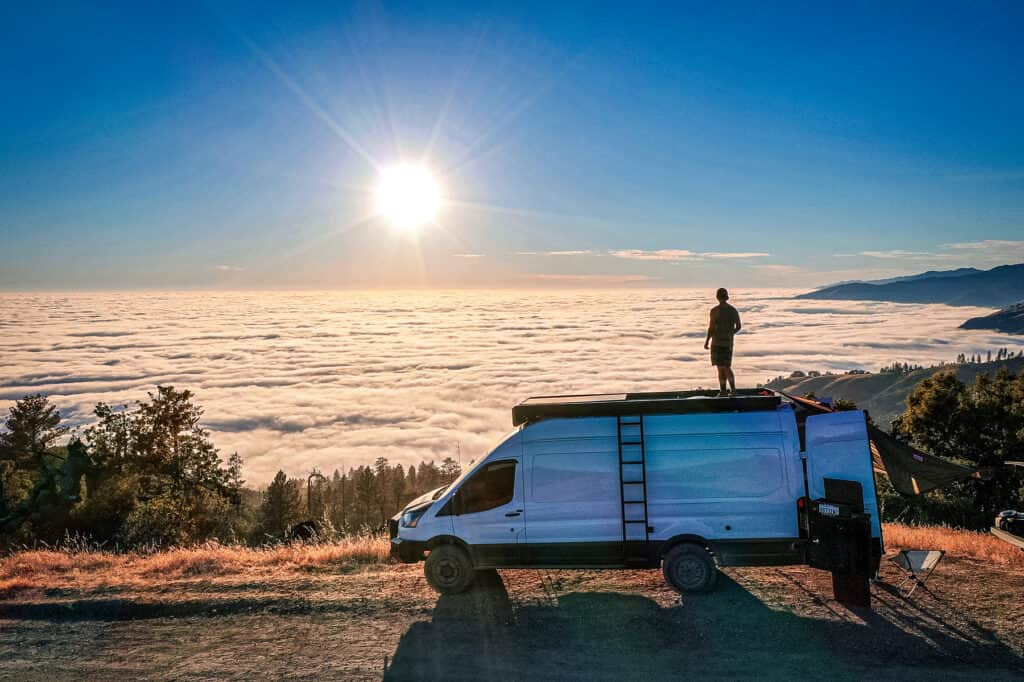
Some travelers reuse gray water. For instance, some people use hand-washing water to rinse muddy gear or flush portable toilets. While not all setups make this easy, those that do save water and reduce waste.
Even something as simple as storing water in shaded parts of your van can help reduce algae growth and keep it tasting fresh, especially in warmer climates.
Seasonal Shifts in Water Strategy
Water needs, and access, change dramatically with the seasons. In winter, freezing temperatures can spell disaster for water tanks, pipes and filters. Insulating your tanks, using heat tape, and switching to smaller containers that can be stored inside are smart ways to avoid frozen systems.
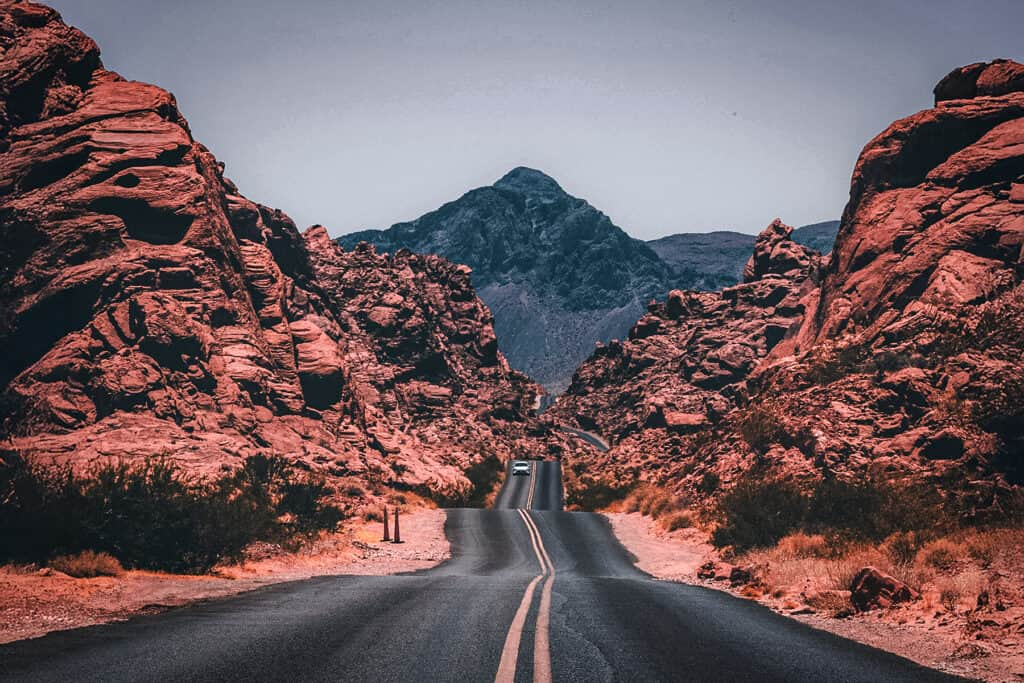
During summer, the challenge often lies in preventing water from becoming too hot or contaminated. Storing jugs out of direct sunlight and cleaning tanks regularly helps maintain freshness. Some van lifers even time their refills to coincide with cool mornings when bacteria growth is less likely.
The Van Life Water Ethos
Ultimately, sourcing water as a van lifer isn’t just about logistics, it’s part of the lifestyle. It encourages awareness of resources, builds relationships with new communities, and fosters a deeper appreciation for something most people take for granted.
The van life community thrives on shared knowledge. Forums, blogs, and group chats are filled with tips about hidden spigots behind public libraries, towns with free dump stations or friendly mechanics who let travelers fill up after a quick oil change. These are the invisible threads that connect van lifers coast to coast.
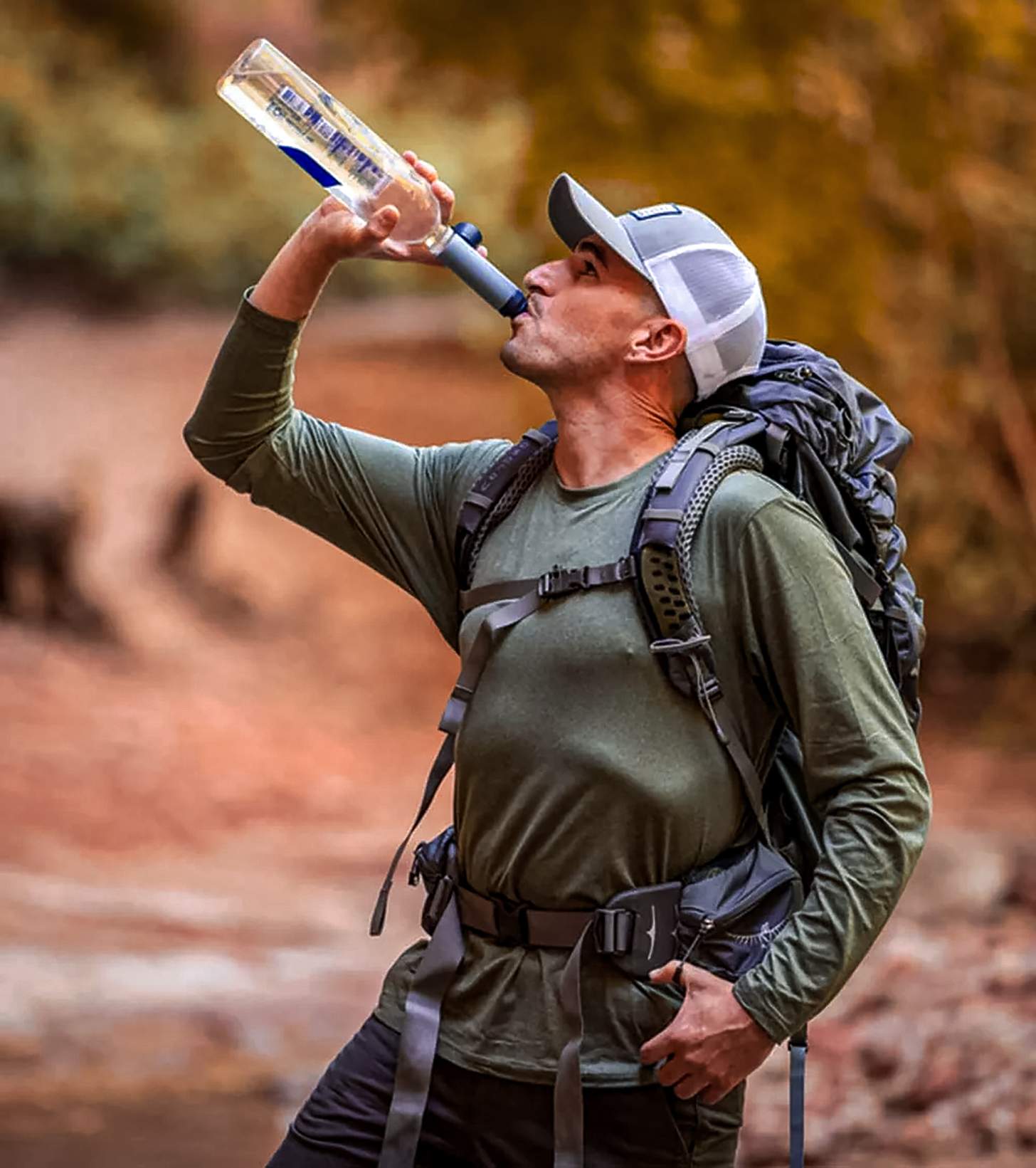
It’s also a matter of responsibility. Accessing public water means being respectful, discreet, and clean. Never leave a mess behind, and always thank the people and places that provide access. It keeps the road welcoming for everyone.
Water is the unsung hero of life on the road. It shapes routes, sustains health, and even influences the mood of a long travel day. For van lifers, learning to manage water effectively is one of the first real rites of passage, and one of the most rewarding.
Whether you're parked at a desert trailhead, boondocking deep in the forest or navigating an urban overnight stop, having a plan for finding and managing water means more freedom, more comfort, and more time to enjoy the journey.
